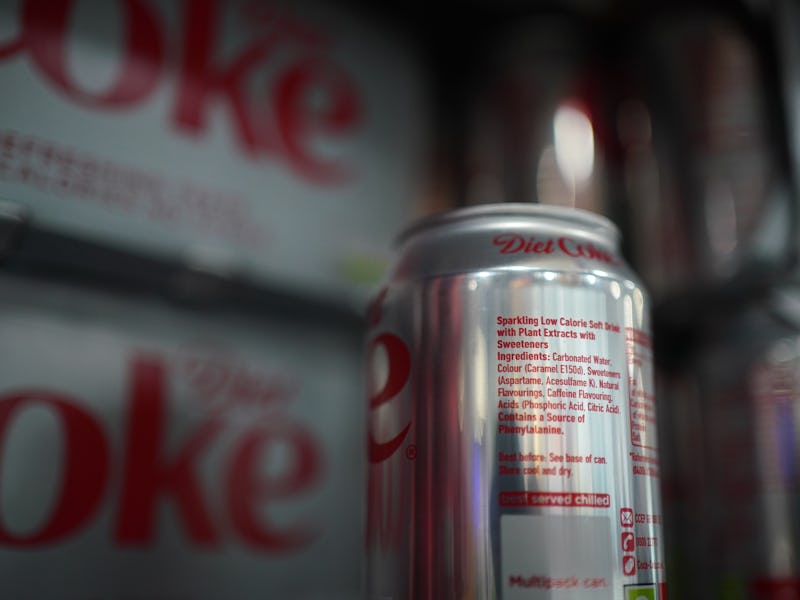The WHO Says Aspartame is “Possibly Carcinogenic” — But This Public Health Organization Disagrees
Carry on with your Diet Coke obsession.

Aspartame, the low-calorie sweetener that flavors Diet Coke, Trident gum, and sugar replacement packets like Equal, has been deemed “possibly carcinogenic to humans” by the World Health Organization’s (WHO) cancer research branch, the International Agency for Research on Cancer (IARC), and the Food and Agriculture Organization (FAO) Joint Expert Committee on Food Additives (JECFA). The WHO released the news on July 14. IARC and FAO/JECFA conducted their research independently of each other.
That same day, the Food and Drug Administration (FDA) provided a lengthy response to the announcement: “The FDA disagrees with IARC’s conclusion that these studies support classifying aspartame as a possible carcinogen to humans.”
Here are some of the biggest questions regarding the popular artificial sweetener in light of these announcements.
What is aspartame, exactly?
Aspartame is a chemical made of two amino acids, aspartic acid, and phenylalanine. Researchers estimate it’s about 200 times sweeter than sugar. The WHO notes that this popular sweetener has flavored soda, gum, ice cream, cereal, chewable vitamins, toothpaste, and more since the 1980s. Notably, it contributes few to no calories and doesn’t spike blood sugar, making it an attractive ingredient to those closely tracking their glucose levels.
How much aspartame is safe?
Aspartame’s recommended daily intake limit, set by FAO/JECFA, is 40 milligrams per kilogram of body weight. In light of this release, the WHO’s food additives arm didn’t change that recommendation but did reaffirm it. One can of diet soda contains between 200 and 300 mg of aspartame, so an adult weighing about 154 pounds (70 kg) would need to consume more than 14 cans daily to outdrink the suggested amount.
Can aspartame cause cancer?
The IARC defines a substance as “possibly carcinogenic” if there’s limited evidence of a cancer link in humans and less than sufficient evidence of a link in animals.
“Possibly carcinogenic” is the third of four categories, the first being “carcinogenic to humans” and the fourth “not classifiable” regarding its carcinogenicity to humans. Other possibly carcinogenic substances include aloe vera, dry cleaning chemicals, car exhaust, and gasoline.
The IARC’s conclusions came from limited studies on liver cancer in humans and rodents. The WHO underscores that while the IARC’s description speaks to scientific evidence that a substance can cause cancer in humans, but doesn’t actually “reflect the risk of developing cancer at a given exposure level.” While there’s some evidence that this chemical sweetener is linked to cancer, it’s still limited.
The FDA calls aspartame “one of the most studied food additives in the human food supply”
Should I give up aspartame?
Thousands of foods use aspartame and other artificial sweeteners, and the FAO/JECFA re-upping the suggested amount speaks to the fact that aspartame is something to be watched rather than avoided. The FDA refutes this classification, calling aspartame “one of the most studied food additives in the human food supply” and saying that FDA scientists have no safety qualms with aspartame for its approved uses.